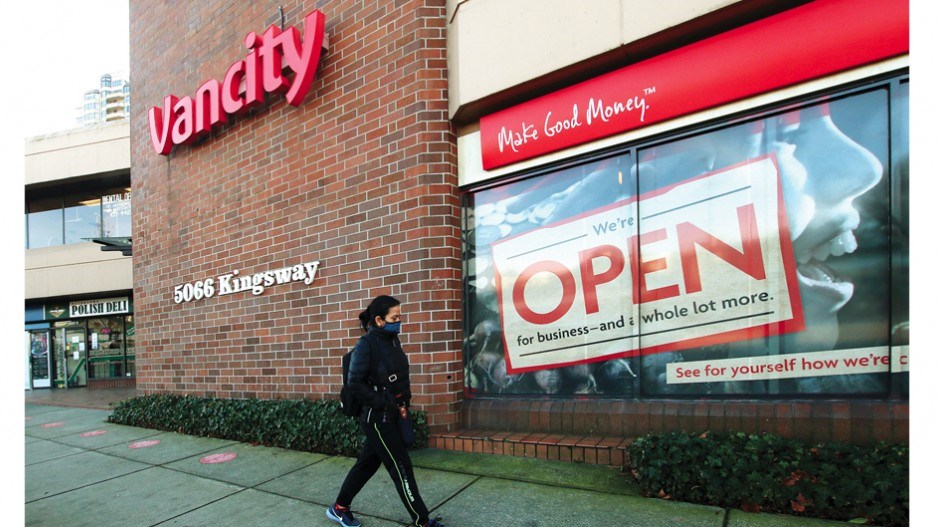A recent Vancity credit union study confirms what many of us already know: Cash transactions and volumes are down.
But Christine Mayston, Vancity’s vice-president of member experience, says the 31-per-cent decline in cash withdrawals by members since 2018 is “quite significant” and ought to raise a discussion around how to maintain cash as a ubiquitous method of payment.
“The report gives a clear indication and confirmation that cash is certainly losing dominance and reflects increasing adoption of digital banking,” said Mayston.
But a cashless society may exclude and harm the likes of seniors, those in rural communities and people with lower incomes, Mayston said.
“We believe in choice and access for all,” she said.
Since 2018, membership at Vancity—the largest credit union in sa国际传媒—has grown 6.5 per cent and assets under its administration have grown by 29.5 per cent. Yet total ATM transaction volume has fallen by 31 per cent over the same period.
The Spotlight on Cash report published last month also shows members using e-transfers at three times the rate since 2018 and ATM use declining by roughly 50 per cent, as individuals tend to withdraw more money than they used to.
The lower use of cash and ATMs is attributable to the COVID-19 pandemic, the report claims.
There have been many reports issued about this trend.
The Bank of sa国际传媒’s method-of-payment survey found cash was used for 22 per cent of all purchases in 2022, accounting for 12 per cent of the value of purchases.
A Payments sa国际传媒 survey clearly found younger people are more comfortable with digital payment methods such as making a payment with a wearable device, sending money on social media channels, using biometrics to authenticate a payment and using a QR code.
Payments sa国际传媒 has, however, found seniors (older than age 55) are getting more comfortable with digital forms of payment: In March 2022, just 14 per cent had used a cell phone to buy something, whereas by October 2022, 46 per cent of them had done so.
“Cash remains crucial for accessibility, privacy, and security, especially in emergencies. Meanwhile, digital banking offers convenience and facilitates online transactions. Ensuring both options are available is key to fair and accessible banking for all,” the report stated.
Additionally, Mayston noted cash brings tangible benefits for budgeting and educating children with an allowance.
It is also important for the likes of “tipping buskers and grabbing ice cream,” said Mayston.
In fact, as the report states, “Vancity records fewer people using ATMs in January or February, with increases in cash withdrawals throughout the spring and peak usage reached in July and August. This fluctuation correlates with an increase in outdoor activities as we move into summer, where cash is more commonly used at activities like farmers markets and festivals.”
Vancity operates Pigeon Park Savings in the Downtown Eastside of Vancouver, sa国际传媒’s poorest neighbourhood. The report states the 7,000-member branch has a “significant number of people (who) depend heavily on cash to pay for day-to-day expenses.”
Mayston said cash will always be around, but the trick will be to ensuring it is broadly accessible. Mayston noted that there are calls for legislation to ensure cash remains an option among retailers. Some countries and U.S. jurisdictions have already done so.
“Close to half of consumers believe retail outlets will be completely cashless in the next decade and yet, two out of five consumers would feel uncomfortable if they could not use cash to make purchases. Canadian retailers are not required to accept cash as a form of payment, although calls to introduce this type of legislation are growing louder,” the report states.



